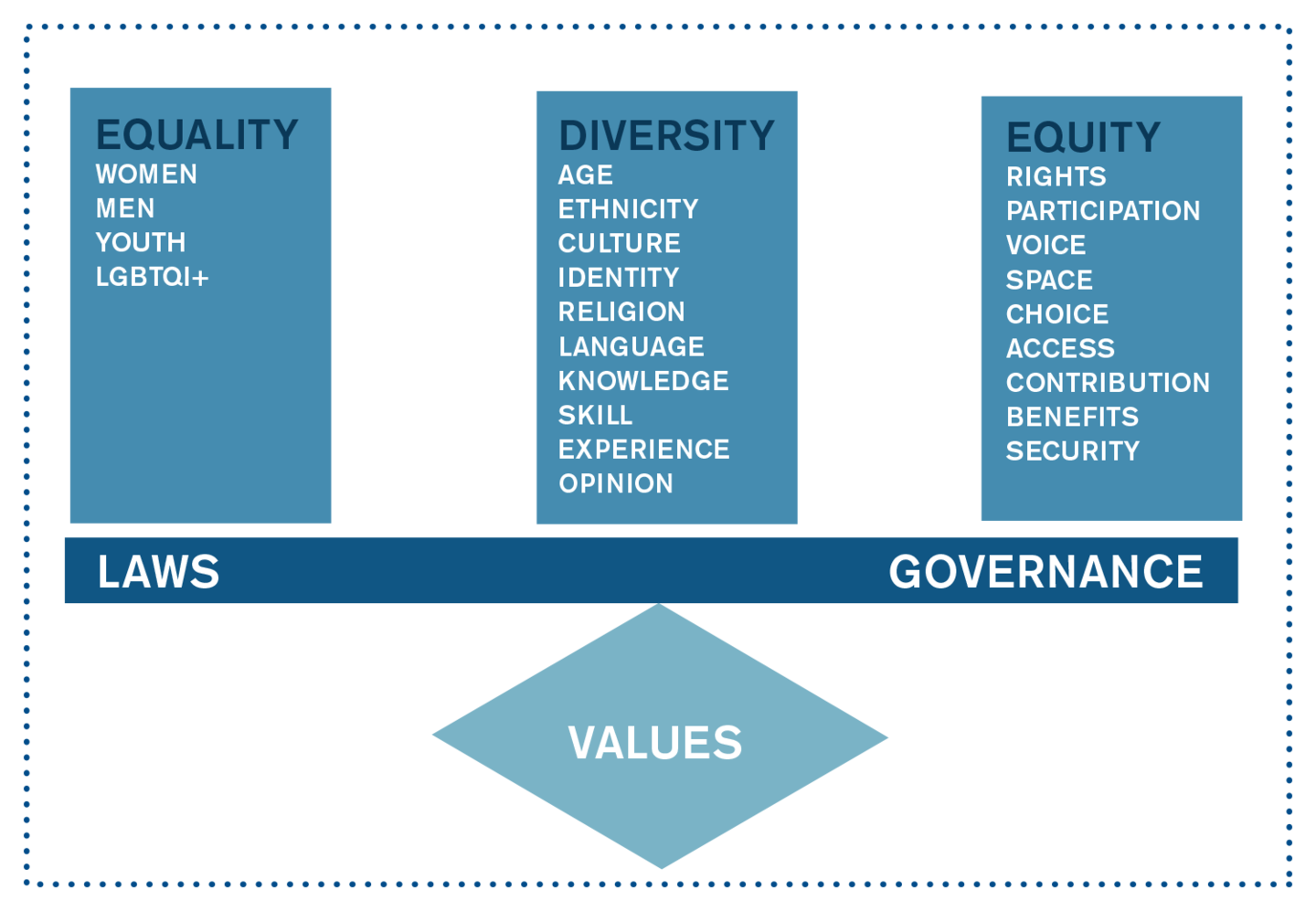Addressing gender and social equity is essential for preventing and responding to key risks and challenges while contributing to more lasting solutions and sustainable impacts in all the contexts where Helvetas works, no matter the working area.
Inequality, insecurity, instability and injustice are on the rise
The interdependent cycle of cause and effect between social inequality, social exclusion, social insecurity and social injustice requires integrated, strategic, systemic and do-no-harm approaches. Despite progress, increasing fragility is threatening the livelihoods, wellbeing and rights of those already most affected by discrimination, marginalization, violence and other environmental, social, economic and political risks.
Inequality begets insecurity, instability and injustice. These result in an absence of social inclusion, social equity, social cohesion and social justice —in other words, peace—be it at the individual, communal, societal or global level.

Systemic change relies on analyzing and integrating three key areas: the country’s policies and laws, governance system, and culture and values.
Gender equality needs to be included, protected and accounted for, in and before the law, for all women, men, youth and different gender identities (e.g., LGBTQI+). (SDG 5)
Social equity relies on good governance principles and practices, which invite participation and inclusion, safeguard rights, create spaces where all people have access, voice and choice, and enhance opportunities for all. This contributes to safely and securely leaving no one behind. (SDG 10 and SDG 11).
How laws and governance are shaped and influenced by both duty bearers and rights holders, relies on individual, societal and institutional values, which either include or exclude diversity, dignity, and basic human rights. (SDG 16)
Our GSE work: People centered and self determined
Helvetas’ vision is of a just world in which all people determine the course of their lives in dignity and security, using environmental resources in a sustainable manner. This means we do not regard the people and communities we work with as mere target groups or passive beneficiaries of development assistance or humanitarian aid.
Rather we respect, value and aim to strengthen the women, men, youth and groups we work with as rights holders, active participants and contributors to the changes we seek to achieve together. Our program participants are the primary stakeholders who ultimately should self-determine the transformations we achieve and impacts that will shape and define the quality of their lives.
Our Expertise and Services
We seek to partner with organizations that share our broad organizational values. Our Gender & Social Equity Team provides advisory services both to Helvetas and external clients.







